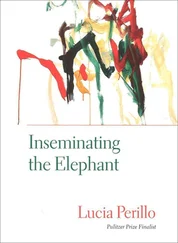Just as the human brain evolved with the talent of memory, it evolved with the capacity to forget as another survival trick. So I am quickly forgetting my vulgar attempt at sales, and I thought I would write about it before it slips from my head completely. All in all, I figure I sold forty books, and those I have left seem ripe for some sort of ecological building technique, as old tires have been used to make houses (once I rode on a plane next to a couple returning from a class about how to build these “earth arks,” whose design had been pioneered by a forgotten TV star). I’ve also thought of giving the books away to try to rehabilitate the spirit of the gift, but I don’t want to irritate the people who’ve already sent me twelve dollars. Plus, I have the sneaky and heart-crushing suspicion that I might have a hard time even giving away a poetry book.
Money is like sex in this particular American eddy in which we swirl. We post its icons everywhere, yet we do not consider it good form to talk about either subject in specific terms (as in the matter of tampons, our ads will never utilize the fine word blood ).
As far as cheerleading goes, by my junior year I’d quit, because my “consciousness had been raised,” as we said back then, and cheerleading had come to seem frivolous when so many pages of history were being written and college students were being gunned down by the National Guard on their baseball diamonds. Also, in those days it was not good form for cheerleaders to have hair on their legs, and I was letting mine grow in protest of the razor’s tyranny.
1
The bats slice through the neighborhood, over the food coop on Rogers Street, navigating by the tallest trees. The sky has to have reached a certain color, all the egg-blue drained but the indigo not yet lit up: the bats emerge during the silver tones. They come from chimneys farther west, or from the cracks underneath loose shingles of the few old bungalows that remain unbulldozed up on Cooper Point. Most of them bypass the forest belt that drops eastward down the ravine, the trail there stair-stepped and impassable to me. Instead, the bats take the straight shot of the road, heading south, steering around the corner where Rogers makes a jog. They aim for the giant Douglas fir by the park bench that isn’t there anymore because it was stolen.
That’s where we wait, Sandra and I, a bit uphill, so we can see a big wide sweep of sky. But when they come — on schedule — the bats do not take this path of open air. Instead, they cut across a laundry line in the backyard of the stucco house with the roof curved like a saddle.
The big brown bats come first, flopping like large awkward moths. Then the little brown bats arrive in greater numbers, flying faster and with more grace. They turn ninety degrees into the alley as if they were traveling by map, sometimes at the level of our knees or heads. In the dim light, their bodies blur as they jerk up and down with each wing stroke — that’s how you tell them from birds. Then they vanish down the alley like a gust of wind that came from a fire, specked with ash.
Sandra lies on someone’s lawn, and I’m trying to figure out a comfortable way to use my elbow as a pillow as I look up from the wheelchair. I’m thinking about climbing down from it, so that I too can luxuriate as the stars sift their dust down. But I notice that she hasn’t volunteered to help me up. The problem is that we met when I was young and she was middle-aged, and now I’m middle-aged and she is too old for such lifting. Time shuttles us from station to station like a train, and I wonder how it does the job so quietly, without the start-up moan and the screech of brakes.
In between corkscrewing my head up like a parrot, I look at the ground wistfully. Still no offer from my friend, whose getting old irks me, though she did identify every flower along Rogers Street to make sure I noticed it. How I irk her in turn is by never being able to accept what’s presented as good enough. Rogers Street has thrown itself into one last gasp of blossoming, and Sandra’s been trying to teach me the scientific names of ornamental flowers. The point of these knowledge games is: to have the now get large.
“But you can’t know everything,” I say as she does her lying-down while I twist my parrot-head. “Not even about one moment. Not every single species along the road. Not all the trees in the field of view.”
“No harm in trying,” she says from the ground. “As long as you’re stuck in one place you might as well try to get to know it as well as you can.”
I think, Easy for her to say, her head resting comfortably in her knitted fingers.
I think, Come on, old woman, get me down, I know you can, I’ve seen you chop a cord of wood.
2
How I’ve come to be looking at this particular tree and this particular alley is because last night I went on a nature walk led by the bat guy , who wore a fishing vest and a diamond earring. He carried a transistor radio — sized machine tuned to what he called the songs of the bats — the pinging of their sonar. Amplified through his machine, they sounded like kittens being drowned. The group of people who showed up was larger than he expected and gabbed while he spoke. I thought this might have irritated him, because later on he said that if we weren’t seeing bats, it was because we were talking too much. Not that the noise would bother the bats — it was us who were too distracted.
This was down by the man-made lake at the center of town, where a cloud shaped like a falcon hung unmoving in the sky. I was glad for the chance to claim a sidewalk for my wilderness, between lampposts 43 and 44, just north of the bus stop. For a change, nature deployed itself in a spot that I could access easily, though because of the road noise, most of the bat guy’s introductory speech escaped me. I did hear, Bats have no greater incidence of rabies than any other species. When he takes them out of the nets when he’s tagging them, he lets them bite his arm.
Then there came the usual crepuscular minutes when the darkness sneaks up and switches on, and that’s when suddenly the bats came zipping between lampposts 43 and 44. They come to freshwater to feed on midges mosquitoes damselflies , I hear him say, and nymphs emerging from the lake.
Their shadows swatted our cheeks right there on the sidewalk; I could feel the whispery way they stirred the air. Despite my intentions, I shrieked, and maybe it was just my imagination, but I thought the bat guy gave me the stink eye, that I’d think the bats would be so dumb as to hit me. He says that if they can pick out a moth in complete darkness, for god’s sake, they’re not going to hit my head.
They hunt by sending cries into the world and gauging what’s there by the speed with which anything comes bouncing back, and it amuses me to think we humans also operate in this manner, locating each other through the echoes of our screams ( bats are less closely related to rodents than primates , the bat guy said).
Most of the group falls away when we leave the bus stop and cross from the lake to the upscale supermarket on the bay. The sky’s gone fully dark now, and I think maybe people were scared by how swiftly and closely the bats approached, rabies or not. I try to imagine the soft unlikely smash of one colliding with my face.
From the waterfront parking lot of the supermarket, you can see the bats slipping around the sea wall on their way to the lake. They disappear into the black crescent between the bay at high tide and the concrete arch of the new bridge. We’re gathered on the boardwalk that stretches along one side of the market, the bat guy using terminology like the matrimonial roost. Like time expansion , which means the way he can slow down the speed of his tape to make their screams sound more like chirps.
Читать дальше











![Various - Birds and Nature, Vol. 12 No. 5 [December 1902]](/books/745517/various-birds-and-nature-vol-12-no-5-december-thumb.webp)
![Various - Birds and Nature Vol. 11 No. 2 [February 1902]](/books/745533/various-birds-and-nature-vol-11-no-2-february-1-thumb.webp)